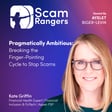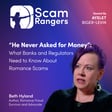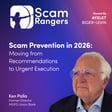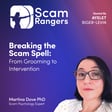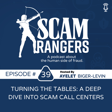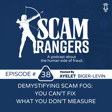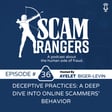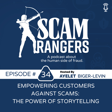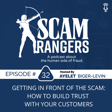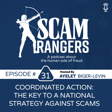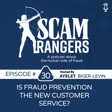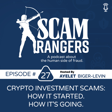
Online Scam Awareness That Sticks: How to Get Marketing on Board, With Gabriel Friedlander, CEO of Wizer - Free Security Awareness Training
In this episode we talk to Gabi Friedlander at Wizer about how financial institutions can create effective awareness to educate their customers on online scams, and how educating kids in school about basic concepts of online safety can help prevent scams later in life, such as romance scams, investment scams, sextortion and phishing, to name a few. At the end of the episode Gaby provides concrete advice on how you, as fraud fighters, can collaborate with your marketing teams to drive differentiated scam awareness for your customers.
You can find Gaby here: https://www.linkedin.com/in/gabrielfriedlander/
Wizer: https://www.wizer-training.com/
This podcast is hosted by Ayelet Biger-Levin who spent the last 15 years building technology to help financial institutions authenticate their customers and identify fraud. She believes that when it comes to scams, the story starts well before the transaction. She has created this podcast to talk about the human side of scams, and to learn from people who have decided to dedicate their lives to speaking up on behalf of scam victims and who take action to solve this problem. Be sure to follow her on LinkedIn and reach out to learn about her additional activities in this space. https://www.linkedin.com/in/ayelet-biger-levin/
ScamRanger: https://scamranger.ai/
